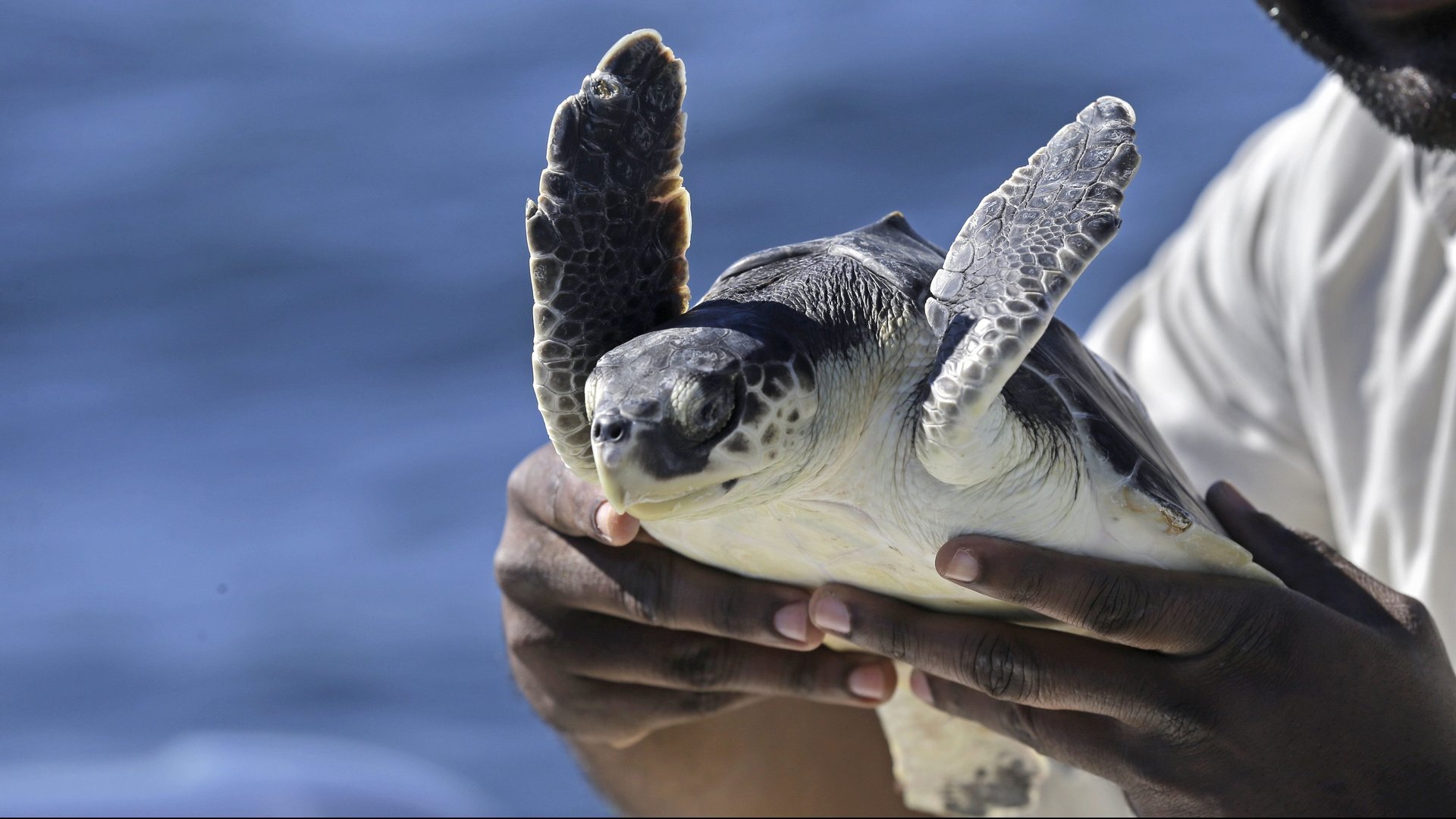Climate change is tricking these tropical turtles into stranding themselves on Cape Cod in winter
Kemp’s ridley sea turtles are a tropical species, spending most of their time in the Gulf of Mexico and traveling north only to nest. That is, until climate change started confusing the hell out of them.


Kemp’s ridley sea turtles are a tropical species, spending most of their time in the Gulf of Mexico and traveling north only to nest. That is, until climate change started confusing the hell out of them.
As Josh Wood reported for the Guardian on Wednesday (Dec. 26), biologists are finding the critically endangered sea turtles stranded on Cape Cod, Massachusetts in the middle of winter. They aren’t leaving the peninsula in time to migrate south to warmer waters.
The reason is warming waters. The Gulf of Maine, in which the Cape Cod peninsula sits, is warming faster than 99% of all other bodies of saltwater in the world. That’s likely why the area has also seen a massive lobster boom.
Warmer water is good for the turtles, at least at first; it means there’s more plentiful food for them to eat. But then winter comes, and lately they have failed to swim around the crook of the peninsula before temperatures drop. “It’s warm water now,” Bob Prescott, the director of the Massachusetts Audubon Society’s Wellfleet Bay Wildlife Sanctuary on Cape Cod, told Wood. “What we don’t think they understand is the change in the seasons.”
Wood notes that winter sea-turtle strandings on Cape Cod were rare—a few dozen a year—as recently as the 1980s. Over the past decade they’ve creeped above 1,000 per year, with 790 already stranded as of this December.
Climate change is doing a number on sea turtles around the world. Green sea turtles are now born overwhelmingly female, because of too-warm sand. (The sex of most turtles—along with alligators and crocodiles—is determined by the temperature of the sand their egg incubates in.) In some cases, as on beaches in Florida and Costa Rica, the sand is so hot that biologists have found sea turtle eggs cooked alive.
In Hawaii, a tiny island called East Island was this year erased into the sea by a hurricane. It was the single most important nesting site for the Hawaiian green sea turtle, another imperiled species.
Hurricane Walaka, which wiped out the island, was one of the strongest Pacific Ocean storms in recorded history. As the New Republic noted, its rapid intensification is consistent with the effects of climate change—storms passing over hotter-than-average seas intensify far faster.
Rising sea (and sand) temperatures are a problem that not even marine protected areas can fix; only slowing global climate change would make a dent.